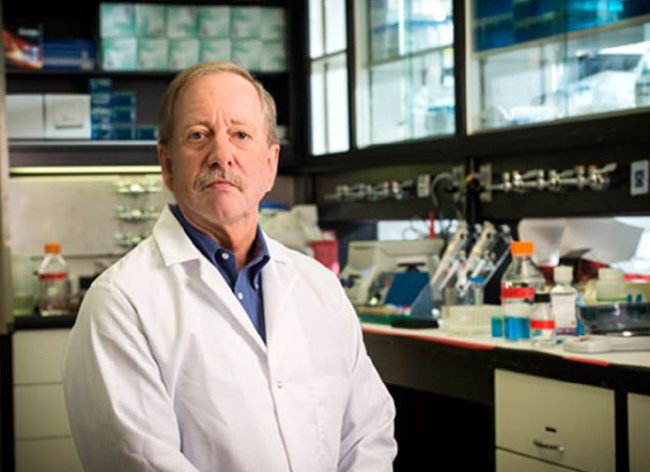Author: Susmita Murthy
Every successful scientific researcher was always interested in science, right? Not Dr. Steven Austad, one of UAB’s foremost experts in biological research. Dr. Austad has been involved in scientific research for over thirty-five years, yet as an undergraduate student he was not at all interested in pursuing a research career. In fact, his first bachelor’s degree is not even in a laboratory-based science major, but in English Literature! So, how did an English major become not only interested in science, but an accomplished researcher? Dr. Austad described to me how his experiences training animals in Hollywood for the film industryfirst sparked his interest in biology and animal research: “It is hard to be around animals 10, 12, 14 hours a day watching their behavior without getting very interested; why do they do this and not that? What causes them to do this and not that?” This curiosity about animal behavior led Dr. Austad to get another bachelor’s degree, this time in biology. He went on to complete his doctorate and postdoctoral training, focusing on combat behavior in animals and on group-living birds, respectively.
Today, Dr. Austad’s research has transitioned from the field into the laboratory as he has begun to explore the biology of aging, which he describes as one of the “most interesting biological puzzles.” His studies start from the viewpoint that aging represents the failure of an organism to repair itself—essentially, a breakdown over time of the processes that naturally correct for accumulated damages and rebuild each cell of the body as all its components are continually recycled. In his laboratory at UAB, Dr. Austad studies several organisms as models for this process. One of these is a species of clam that lives for over five hundred years and is believed to contain a molecule that prevents its proteins from folding incorrectly. Practically, Dr. Austad explains, “Diseases like Alzheimer’s and Parkinson’s are caused by protein misfolding, and this is a potential clue to preventing them. We could find something in a clam that could be the treatment for Alzheimer’s disease, and that’s pretty exciting!” Dr. Austad also studies hydra that have the potential not to age at all—some species will age when they are stressed by environmental conditions, while others will never age. Hence, Dr. Austad’s hydra research focuses on differences among the genomes and patterns of geneexpression of different individual hydra, to explore the molecular basis of this conditional aging within a single species. Exotic animal research is certainly fascinating in its own right, but Dr. Austad is also confident that it can be extremely important for insights into our own health: “This research can be translated into something that is very beneficial for human health. I’m trying to figure out ways to improve human health by studying aging in animals.”
Despite the fact that his research is novel and interesting even to many non-scientists or non-biologists, Dr. Austad does admit that “the day-to-day life [of a research scientist] is very tedious.” So what keeps him motivated to continue pursuing a career in scientific research? Dr. Austad gives the most credit for his motivation to the subset of biology that his career is rooted in—aging research holds his interest mainly because every answer he gets leads to more questions, thereby allowing him to always discover new things. Dr. Austad holds hope that he will discover something that no other person has, which he finds to be an exhilarating prospect. He feels that this kind of potential for innovation and discovery through science should be emphasized to undergraduates and can help to get more of them involved in research. In fact, he believes that undergraduate students are inherently curious, and thus are naturally drawn to the opportunity to make a novel discovery. Unfortunately, he thinks, the majority of undergraduate students simply don’t realize just how exciting scientific research can be—they only see the short-term, tedious day-to-day laboratory grind and aren’t open to the long-term possibilities and rewards of a career in science. What would Dr. Austad tell these disillusioned undergraduates? “No hypothesis survives the first experiment. Scientists are wrong most of the time, but when we are right it is extremely satisfying.”

